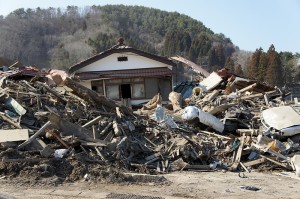 When a disaster strikes many people want to help. But, what is the best way to help? Sometimes our good intentions to help those in other countries can do more harm than good. The list below will make you better able to make thoughtful decisions about how to best support disaster relief.
When a disaster strikes many people want to help. But, what is the best way to help? Sometimes our good intentions to help those in other countries can do more harm than good. The list below will make you better able to make thoughtful decisions about how to best support disaster relief.
1. Find a trustworthy, reputable relief organization to donate to
Professional humanitarian aid organizations are able respond quickly to the urgent needs because of financial gifts. Your gift will be an important part in responding to the emergency needs of the most vulnerable Covenant World Relief is the Covenant Church’s response to disasters in the world. CWR works with local and international partners who have expertise and experience in disaster response. CWR has been responding effectively and efficiently to disasters around the world for over sixty years.
2. Cash donations do make a difference
Cash donations can be used immediately to purchase critically needed items. If at all possible, these items will be purchased in the affected country in order to support the local economy. Experienced organizations will be able to get aid to the afflicted more quickly because they have experience in getting items through customs, avoiding duplication and identifying those most in need. You can trust that at least 90% of your donation to Covenant World Relief will be used for disaster response.
3. Pray. Pray. Pray.
Pray for those who have been affected and for the aid workers. Pray for those who have lost loved ones. Pray for the survivors who are suffering. Pray with others—your family, your church.
4. Going to the disaster zone probably isn’t the best way to help
We all like to serve hands-on, but disaster response is a highly technical and sensitive effort. Professionals with specialized skills and experience in disaster situations overseas are best suited to respond. All too often, volunteers can do more harm than good and consume critical resources.
5. Please don’t start collecting items (blankets, shoes, diapers) unless you have been asked to do so by a reputable agency
Shipping costs, sorting, packing, unpacking, sorting again, and distributing—all of these things take time and precious resources. Many aid groups will not accept any used items anyway. Cash gifts are the best, most efficient way to help organizations provide the needed supplies quickly and purchase them near the disaster zone. In addition, your cash gifts can help organizations replenish their stock in order to be prepared for future disasters.
6. Remember, people are not helpless in the face of disaster
We believe that God has made people in His image. This does not change after a disaster. People often show a great deal of inner strength and resourcefulness when facing tragedy. Outside support and emergency aid are needed, but local people are not simply helpless victims. Local people are the best at knowing the unique context (culture, language, needs) of their own community and are therefore best able to respond. The role of those from the outside is usually to empower and build the capacity of the local community to respond. Remember to never do for people what they are capable of doing for themselves.
Adapted from a World Vision document



2 comments “Best Ways to Support Disaster Response”